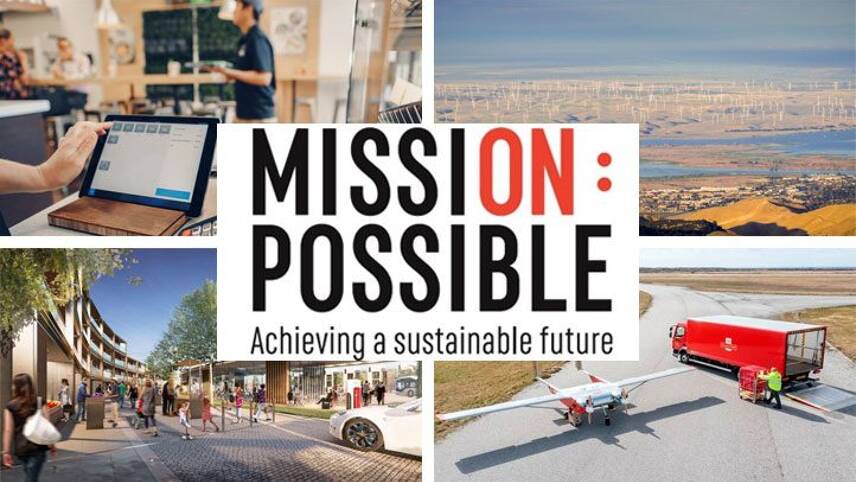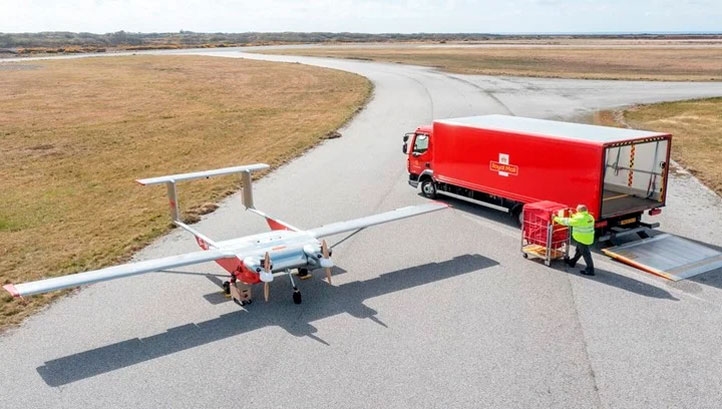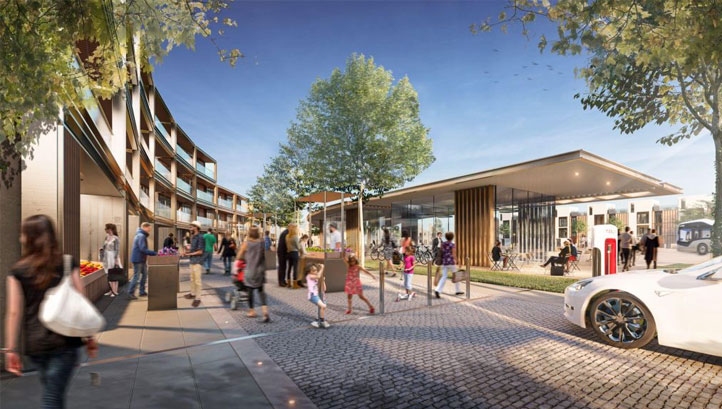Register for free and continue reading
Join our growing army of changemakers and get unlimited access to our premium content

Published every week, this series charts how businesses and sustainability professionals are working to achieve their ‘Mission Possible’ across the campaign’s five key pillars – energy, resources, infrastructure, mobility and business leadership.
As tabloid headlines filled with news surrounding conflict in Palestine and the easing of lockdown restrictions in the UK, projects and initiatives which empower businesses to play their part in achieving a sustainable future, today, continued to launch and scale-up.
Here, we round up five of the top announcements.
ENERGY: California electricity mix hits 95% renewables
California produces more renewable energy each year than any other US state, playing host to thriving solar and geothermal sectors, and is striving to ensure that its energy sector generates 56% less emissions annually in 2030 than it did in 1990.
For the first time on record, the state’s electricity mix reached 95% renewables on Saturday 24 April, the state has confirmed, with solar and wind farms accounting for the bulk. The proportion regularly tops 90%, holding there for hours at a time, but the California Independent System Operator has called the new milestone “amazing”.
The announcement comes as California strives to pass the 100% mark by 2045 but, should Biden’s overarching climate bills be passed, that date could be shifted forwards to 2035.
RESOURCES: Diesel launches denim with ‘permanent’ shelf life
About 1,800 gallons of water are needed to create one pair of jeans – the main contributors being dyeing and cotton growing. This is simply for a basic dark blue pair – the most popular styles and shades, including distressed and light-washed, require additional energy-intensive treatments and/or chemicals.
The good news is that many denim brands are already designing garments to last and taking steps to incorporate lower-impact materials and circular-economy-compatible designs. The latest success story in this space comes from Diesel, which has pledged that its 2022 Spring/Summer collection will consist of “evergreen and longer-lasting” pieces.
Half of the new collection will have a “permanent” shelf life, Diesel said in a statement. While exact details remain scarce – more information is due during a permiere show in June – Diesel has outlined the focuses behind the new collection. They are low-impact materials, low-to-no water and chemical treatments and sustainable trims. The shelf life component relates to the durability and timelessness of the designs.
MOBILITY: Royal Mail starts drone delivery trials in bid to cut emissions
In the same week that Royal Mail announced plans to add 29 biogas-fuelled tricks to its fleet, the firm began trialling drone deliveries for PPE, Covid-19 testing kits and letters for the first time. The drones will be used for deliveries in the Isles of Scilly in the first instance, before the potential for a wider rollout is assessed.
The delivery process is twofold. First, an uncrewed aerial vehicle will carry up to 100kg of mail to the airport at St. Mary’s. Then, once the mail is sorted, a smaller drone will take the deliveries to dedicated points across the island. Royal Mail said the trial marks the first time that the UK uses autonomous drones between mainland and an island.
UK Research and Innovation (UKRI) is supporting the trial. Drones are clearly part of the UK Government’s vision for decarbonising transport in line with net-zero, having featured in multiple funding announcements in recent months.
Image: Chris Gorman, Royal Mail
THE BUILT ENVIRONMENT: Report reimagines villages for a net-zero world
Discussions around the net-zero transition often centre around cities, which will account for more than half of the global population by 2030 by UN estimates, and whose value chains account for 70% of global annual emissions.
But we have been told that the net-zero transition will require “rapid and far-reaching changes” in all parts of society, and that includes more rural locations too. A new report from architecture practice Broadway Malyan this week outlines how stakeholders including councils, national governments and the private sector can collaborate to ensure villages are fit for the future, overcoming eco-challenges like high-emission heating and energy-inefficient housing in tandem with social problems including poor internet connectivity and unemployment.
The report envisions villages in which the centre is within a 10-minute walk of all homes; in which infrastructure is low-carbon in operation and climate-resilient in design; in which shared electric mobility and active transport are prioritised and in which community cohesion is promoted. Freiburg, Germany, is cited as a case study.
“England’s landscape has been defined by the quintessential country village for hundreds of years, but although pretty and quaint, we cannot ignore that they are no longer fit for purpose economically, socially or environmentally,” Broadway Malyan director Jeff Nottage said.
“Our report sets out what we believe will be the key components of a new reimagined village of the future. We want to start a national conversation about the opportunities and significant challenges of realising such a vision and ensure that, beyond the pandemic, we are addressing the housing crisis in logical and sustainable way, creating diverse multicultural, transgenerational and economically diverse communities.”
Image: Broadway Malyan
BUSINESS LEADERSHIP: New campaign to help small businesses reach net-zero
A recent survey of more than 250 UK SMEs found that four in ten are facing real or perceived financial challenges on the net-zero transition, with many others also confused about jargon related to climate policy.
It is timely, then, that Small Business Britain has launched a new campaign aiming to engage and encourage the UK’s small businesses and entrepreneurs to reach net-zero ahead of the legally required 2050 deadline. The campaign will comprise weekly virtual events; how-to guides and a major communications drive, sharing case studies from across the private sector. Small Business Britain represents some 5.9 million small businesses.
“Small businesses represent 99% of businesses in the UK, and are often hugely passionate about sustainability, so they can play a vital role in tackling climate change and reducing the UK’s carbon emissions,” Small Business Britain founder Michelle Ovens said.
“There are some really easy steps that small businesses can take to start reducing their carbon footprint, and these can also help to lower costs and engage customers too. Our campaign is all about supporting and empowering small businesses to understand and address their environmental impact, as well as showcasing and celebrating inspirational stories and progress.”
Sarah George







Please login or Register to leave a comment.